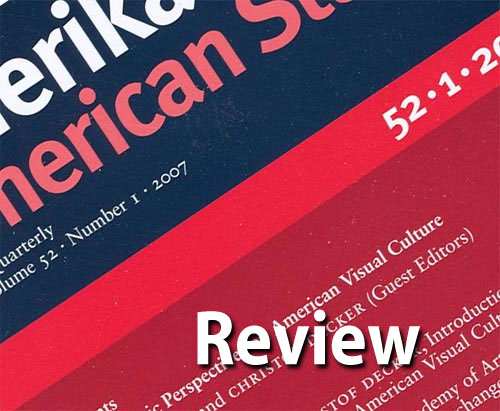Christine Knauer, Let Us Fight as Free Men: Black Soldiers and Civil Rights (Philadelphia: U of Pennsylvania P, 2014), 337 pp.
Amerikastudien/ American Studies, 62.3
Christine Knauer’s Let Us Fight as Free Men is a welcome addition to the growing body of historical scholarship on African American soldiers and the role of war and black military service in the black struggle for racial equality in the twentieth century. While a number of historians have analyzed the ways in which World War I served to simultaneously consolidate and challenge white supremacy, there are no studies that provide a detailed analysis of such social and political dynamics in the post-World War II era. Christine Knauer’s important book begins to bridge that historiographical gap.
Her study concentrates on black activists’ efforts to integrate the U.S. military in the second half of the 1940s, on black military service during the Korean War, and on the multiple ways in which African American activists and commentators interpreted the meanings of that particular war and black soldiers’ role in it. However, readers also learn much about the contributions of black servicemen and servicewomen to the American war effort during World War II, an aspect of the book that serves as a backdrop for the thorough analysis of the decade following the conflict’s end. Combining methodologies and analytical perspectives drawn from social, cultural, and military history, Knauer mined a considerable number of archives and analyzed the press coverage of dozens of African American and white newspapers and magazines.
What distinguishes Knauer’s work from other studies on soldiers of color after World War II is her detailed account of the interrelationship between black military service and civil rights activism, as well as her insightful analysis of the efforts of black pundits and journalists to reshape the image of black soldiers as a means of challenging centuries of racist stereotypes. She skillfully uses gender as a theoretical concept to probe how such ideas as citizenship and civil rights were intertwined with notions of femininity and masculinity. Let Us Fight as Free Men thus shows not only how discrimination within the U.S. military prompted black servicemen and servicewomen to fight for full equality in the military and in U.S. society more generally, but also how African American activists and editors utilized it to challenge entrenched traditions of white supremacy. Most significantly, the study reveals a concerted effort on the part of African American journalists to counter white supremacist memory with their own version of the past and the present, stressing black soldiers’ manly heroism in the wars that the United States had fought and attempting to project a more positive image of their contributions to U.S. nation-building. The Korean War, which was the first military conflict since the Civil War that saw black soldiers being awarded the prestigious Medal of Honor, provided ample opportunity for the black press to make its case.
Yet, Knauer’s book also speaks to the ambiguities of this aspect of the black freedom struggle. She shows that this particular focus on black men and their heroic service on the battlefield tended to ignore black servicewomen and affirmed traditional gender hierarchies within U.S. society. Her analysis also reveals that African Americans did not always speak with one voice in their campaigns to elevate black soldiers to heroic status and to integrate both the U.S. military and American society, veering between adamantly rejecting and deliberately embracing the idea of American patriotism to prove that blacks deserved to be treated like full citizens.
Christine Knauer’s extensively researched, well-argued, and well-written study adds much to our understanding of the role of war and the U.S. military in the African American freedom struggle of the twentieth century. It is to be hoped that it finds a very wide readership.
Simon Wendt (Frankfurt a. M.)


